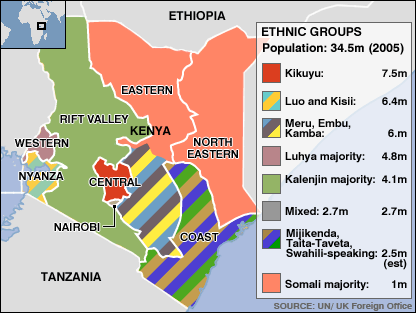As Wai (2012) suggests, examining the causes of ‘state failure’ has dominated global political and international development discourses. This proliferated interest, he contends, is because Western actors are primarily concerned with maintaining international peace and security by reducing breeding grounds for criminal and terrorist activities (Wai, 2012, p. 29). With this said, the concept neopatrimonialism is often used to explain the political relationships in Africa. It can be defined as a form of organization where patrimonial relationships “pervade political and administrative systems that are formally constructed on rational and legal lines” (Mkandawire, 2015, p. 565). Political power and authority is sustained through patron-client networks. Neopatrimonial discourses have tended to suggest that this system is authentically African and can explain most African socio-political problems like corruption, institutional decay, stagnant economic growth, armed conflict and state failure.
However, as we learned today, characteristics of neopatrimonialism commonly manifest in different continents and not all countries that exhibit neopatrimonialism result in state failure. This fact forces us to examine how useful the concept is and highlights the importance of taking into account a country’s historical reality.
I believe that when neopatrimonialism is used to analyze the interplay of informal and formal institutions in governance it still holds very useful. The problem is development practitioners have often given more credence to formal institutions, associating informal ones with bad development outcomes (Unsworth cited in Carter, 2014). As scholars have already began to emphasize, rather than giving formal institutions priority over informal ones, it is fundamentally important to recognize that most countries use a combination of both to maintain political power and manage the state. Depending on the historical reality, informal social norms may play a bigger role than formal ones.

In this regard ethnic diversity is not simply a catalyst for violence but used by politicians to sustain political power. As with other forms of identity (gender, race, religion), ethnicity is politicized by political elites to garner a loyal base of supporters. As Klein (2018) states “different identities are activated at different times and in different ways.” When seen this way it eliminates the notion that ethnic diversity plagues development outcomes in Kenya but forces us to analyze how political elites manipulate ethnicity in both informal and formal institutions to sustain power (Kabiri, 2014).
References
Carter, B. (2014) Defining Institutions. Available at: http://gsdrc.org/topic-guides/inclusive-institutions/concepts-and-debates/defining-institutions/(Accessed: November 16 2018).
Kabiri, N. (2014) Ethnic diversity and development in Kenya: limitations of ethnicity as a category of analysis,” Commonwealth & Comparative Politics 52 (4): 513-534. doi: 10.1080/14662043.2014.957500.
Klein, E. (2018) How identity politics elected Donald Trump. Available at: https://www.vox.com/policy-and-politics/2018/11/5/18052390/trump-2018-2016-identity-politics-democrats-immigration-race(Accessed: November 17 2018).
Mkandawire, T. (2015). “Neopatrimonialism and the Political Economy of Economic Performance in Africa: Critical Reflections,” World Politics, 67 (3): 563-612.
Wai, Z. (2012). “Neo-patrimonialism and the Discourse of State Failure in Africa”, Review of African Political Economy, 39 (131): 27-43.